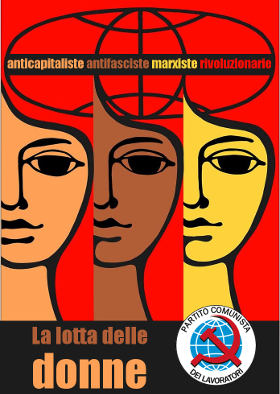Internazionale
Strike waves in Britain for big wage increases
An example for the Italian working class
25 Agosto 2022
Wage strikes are returning to the scene of class struggle. Not (yet) in Italy, but in other countries of Europe.
In France in June, at some companies in industry and related to the transport sector. But especially now in Britain, with the fourth general strike in nine railway companies and wage agitations spreading in logistics (Amazon), ports, urban transport, universities, telecommunications (British Telecom), health care and schools. The British press is talking about the "summer of discontent." Overall, it is the biggest upswing in strikes in the country in decades.
The British labor landscape was marked by Margaret Thatcher's cyclone (1979-1990). The government of the "Iron Lady" promoted the worst anti-union laws in Europe: the maximum restriction of the right to call strikes and the statutory ban on solidarity strikes. The Cameron government in recent years has made the picture worse by further restricting the space for union agility. Trade unions, which still had 13 million members in 1995, now number just over six million. A halving of their organized strength.
But nothing is forever in class struggle.
The Brexit promised the working class improved living and working conditions through the recovery of so-called sovereignty. But none of the promises have been realized. And indeed the worsening of the working-class condition in the last five years has been at the center of the public scene. The crisis of the Johnson government had as its backdrop not only the disastrous handling of the pandemic or the premier's personal mores, but the fraying social consensus around the conservative government.
Now an inflation between 9 percent and 13 percent, unparalleled in Europe, has turned passive dissent into an initial reaction of struggle by important sectors of wage earners. A reaction with reverberations not only union but political.
The internal clash within the Conservative Party over the succession to Johnson has as its object the response to be made to the social conflict, with frontrunner Liz Truss openly claiming Thatcher's legacy and announcing in the event of victory the enactment of new anti-strike laws that would prevent "militant unionism from taking the British nation hostage.”
The Labour Party, caught off guard by the strikes, is unsure which way to turn. Leader Keir Starmer, who succeeded Corbyn, has banned his shadow cabinet ministers from taking a stand for the strikers to gain credibility in the eyes of the City. But the party is shaken. Even some shadow ministers have disobeyed the secretary by siding with him in support of the railwaymen's strike. While the trade unions bureaucracy, which though opposed to the generalization of the strike, seeks to use the strike to strengthen its specific weight in the party.
Certainly the internal crisis within the Conservative Party, the unresolved succession at the top of the government, and even the Queen's decline due to age and ailments give this first resumption of class struggle in Britain a special significance. Not just union, and not just for Britain.
While the bulk of the Italian political left lives the electoral campaign as a space separate from the class struggle and without any centrality of labor representation, we say that the first resumption of British strikes, the emergence of wage unrest in France, the resurgence of American trade unionism are worth more, in terms of their potential for a breakthrough, than any other electoral or politological factor. It is on the terrain of class struggle, and especially its encounter with an anti-capitalist program, that a prospect of a real alternative can mature.
So too in Italy. Giorgia Meloni has already hastened to celebrate her own announced electoral victory and conquest of the government prematurely. But not everything is played out on the institutional political terrain. And any governing solution that emerges from the vote will still have to contend with the unknowns of social confrontation. The Italian working class has certainly suffered a long cycle of social backwardness and political disappointment. But it is not an irreversible scenario. That is why we point to the British strikes as an example for the Italian proletariat. Only a revival of workers' struggle around its own unifying platform can trigger from below a new scenario, disrupt existing political arrangements, open the breach of an alternative. The PCL carries and will carry this central theme into every battle. Even on the electoral ground, where we have the opportunity.










